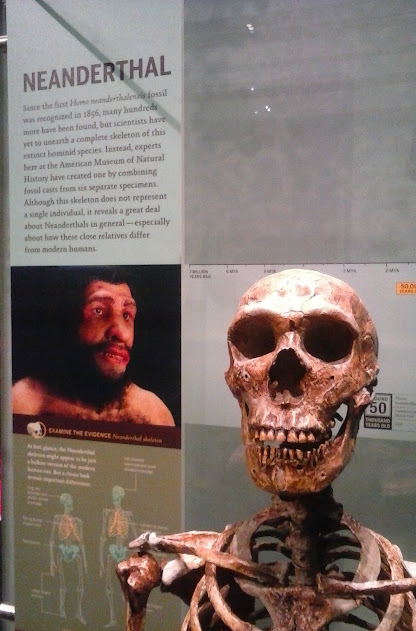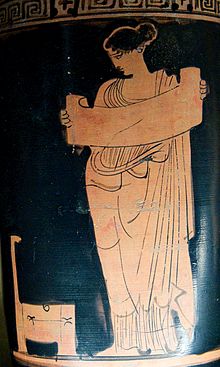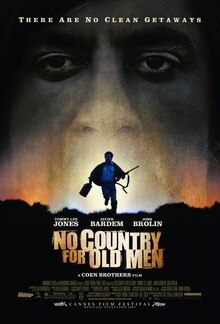
An 1886 view of “Liberty Enlightening the World” – before the talk about building a wall…
* * * *
We left Part I with an example of why – it seems – the Big Apple is “No City for Grouchy Old White People.” But that’s just another way of saying a visit to New York City is a refreshing change of pace. And a lot of that refreshment comes from seeing the Statue of Liberty. (Every morning and evening for four of five days on a mini-vacation…)
But not everyone agrees that “Liberty Enlightening the World” has a special meaning for real Americans. For example, one knucklehead wrote, in 2014:
[The inscription on the Statue of Liberty] is just a poem. It’s not one of our founding documents, nor is it a law, nor is it anything more than what it is: a poem. A nice poem, with stirring, emotion-driven rhetoric, yes, but a poem nonetheless.
See Words on Statue of Liberty merely a poem – azcentral.com. But that – it seems to me – is like saying the Bible is “just a nice set of old-time stories.”
Be that as it may, that just a poem guy was responding to a suggestion that “Congress read the inscription on the base of the Statue of Liberty in order to make a more informed decision regarding immigration.” (Which sounded like a pretty good idea to me.)
And by the way, about 75% of the Old Testament is also “just a bunch of poems.*”
 Which brings up the fact that way too many people interpret both the Bible and the Constitution in the same narrow-minded way.
Which brings up the fact that way too many people interpret both the Bible and the Constitution in the same narrow-minded way.
“Strictly,” narrowly and fundamentally. It also seems they’re usually the ones who already have it made – and are deathly afraid other people might take what they have. (Like the “just a poem” guy. But see my response to that narrow approach – On “originalism” – in a companion blog.)
But we digress!
We were discussing the “mere poem” inscribed on the Statue of Liberty. (The statue I passed by “eight times – twice a day for four days now,” on my recent visit.) It spoke of a “mighty woman with a torch,” whose name is “Mother of Exiles.” (Get that? Mother of Exiles.) The poet then told the “ancient lands” to keep “your storied pomp!” Then came the famous words:
“Give me your tired, your poor, Your huddled masses yearning to breathe free,
The wretched refuse of your teeming shore. Send these, the homeless, tempest-tost to me,
I lift my lamp beside the golden door!”*
Which seems to speak volumes about the American Dream. The Wikipedia article on that “national ethos of the United States” featured a picture of the Statue of Liberty, with these words: “For many immigrants, the Statue of Liberty was their first view of the United States, signifying new opportunities in life. The statue is an iconic symbol of the American Dream.”
And that – I assume – includes the inscription written on the Statue of Liberty.
 Finally – on this topic – It also seems to me that the “just a poem” guy probably bears a passing resemblance to the man shown at the bottom of the page. (At least metaphorically…)
Finally – on this topic – It also seems to me that the “just a poem” guy probably bears a passing resemblance to the man shown at the bottom of the page. (At least metaphorically…)
So now, like Mr. Gump, “That’s all i have to say about that.”
* * * *
Meaning I’m done with the soapbox part of this post.
Turning to the true travelogue part:
Five of our six various group-members met up on Friday afternoon and evening, September 16, at the home base near the north end of Staten Island. (From which we were to commute by ferry to Manhattan, and which itself was home to a number of strange-speaking “furriners…”)
At its fullest, the ever-shifting “Gang of Six” consisted of the brother and the nephew with whom I recently hiked the Chilkoot &^%$# Trail! Along with my sister-in-law and her daughter – my niece – and her relatively-new beau. (Of over a year now, and he arrived late Saturday night.)
On Saturday morning, September 17, the five of us took our first ride on the Staten Island Ferry, and visited the One World Trade Center. In the evening we all – still just five of us – took an tour by double-decker bus, of lower Manhattan and Brooklyn. (Punctuated by the bomb going off in the Chelsea district shortly before we passed by, as noted in Part i.) But other than that the tour was nice. At the end of this long day, I got three “Stellas” at the Whitehall (Manhattan) Terminal. One for me, one for my brother and one for my nephew. (We had beer in the car near the Staten Island terminal, but that would have taken a while to chill. Which is why I got another beer on the ferry ride back to Staten Island. $6.00, cash only.) We got home about 12:39, much past my bedtime.
On Sunday, September 18 we got up late, and we elder-folk finally met “the beau.” (Who had arrived late the night before.) After that we mostly relaxed and stayed on Staten Island. I did some laundry. The six of us took a walk on the Franklin D. Roosevelt Boardwalk and Beach.
On Monday, September 19, a new set of five took the ferry to Manhattan. (After my nephew headed back to classes at Penn State.) We visited the Museum of Natural History – uptown – after a long, crowded ride on the subway. And the line to get in – shown at right – was also very long and very crowded.
That night we had dinner at the Hard Rock Cafe New York (Theater District), after which we wandered around Times Square awhile.
Somehow we lucked into some $30 tickets to see “The Fantasticks” at the Jerry Orbach Theater, at 210 West 50th Street. (“The show’s original off-Broadway production ran a total of 42 years and 17,162 performances, making it the world’s longest-running musical.”)
Which made for another late night trip on the ferry. (Fortified by one beer from the Whitehall Terminal, one beer on the ferry itself – I remembered to bring cash – and one back home.)
Tuesday we five headed over to the City on the noon ferry. While we were waiting in the terminal, there was an old guy wandering around talking to himself, saying something about wanting to get married. It looked like he was wearing something like adult diapers…
 Once we got over to the city, we took another subway ride up to the start of the “High Line.” That’s the mile-and-a-half “New York City linear park built in Manhattan on an elevated section of a disused New York Central Railroad spur.” Then we had lunch at the Artichoke Basille’s Pizza, in Chelsea. (The same neighborhood where the bomb(s) went off Saturday night.)
Once we got over to the city, we took another subway ride up to the start of the “High Line.” That’s the mile-and-a-half “New York City linear park built in Manhattan on an elevated section of a disused New York Central Railroad spur.” Then we had lunch at the Artichoke Basille’s Pizza, in Chelsea. (The same neighborhood where the bomb(s) went off Saturday night.)
Then my niece and her beau left to head back to home-and-work places in the Washington D.C. area. That left three of us – the three “elders,” two of whom are retired – to head uptown. We headed uptown – by another crowded subway – to a museum I had chosen, the Frick Collection (and/or Museum). (“I picked the Frick!”)
And through the magic of internet, you may see the galleries “through our Virtual Tour.”
We had a light supper at some swanky place uptown. (I had a brioche au fromage sandwich – with tomato – and we sat outside and watched rushing New Yorkers passing by.) Then we took a walk along the Hudson river-front, and still got home fairly early. I bought a draft Bud Light at the terminal – again – and a Corona for my brother. (He has expensive tastes in beer, at least outside Utah. Where he lives they can only buy 3.2 beer.)
Wednesday, September 21, was pretty much an “anti-climax day.” We visited the South Street Seaport Museum | Where New York Begins. But then we ended up taking the 3:30 afternoon ferry back home. That’s because we found out – after the museum visit and lunch – that Ellis and Liberty islands were at least partially closed, because of a visit by “the Prez.” But back on Staten Island my brother and I visited the National Lighthouse Museum.
Then we started packing, to head back home the next day.
 On Thursday, September 22, I kayaked across the Verrazano Narrows. (Mostly following the Bridge of the same name.)
On Thursday, September 22, I kayaked across the Verrazano Narrows. (Mostly following the Bridge of the same name.)
Here’s a photo from about half-way back to Staten Island. You may notice that the waters are fairly choppy. And I can tell you that those waters got WAY choppier than when I started. In other words, I seem to have started out – that fine Thursday morning – on pretty much of a neap tide. It only took me 20 minutes to get from Staten Island to Brooklyn, and I like to do a full two hours of kayaking a week. So on the way over I toyed with the idea of cruising along the Atlantic side of Brooklyn for awhile.
But I decided not to, mostly because I figured it would be better to get back on the put-in side while I was still fresh. And it’s a good thing I did. As I was paddling back the tide started coming in. Which wasn’t so bad, since at worst it would have swept me in toward Hoboken.
I ended up having 13 minutes left of my two-hours-of-kayaking-a-week quota, when I finally got back to where I put in, at Roosevelt Beach. (And got dunked “coming in for a landing.”) But it could have been worse. The tide could have been going out. (As in, “out to sea…”)
And that was pretty much it for my visit to New York City. I drove home via the Cape May Ferry and the Chesapeake Bay Bridge–Tunnel, and got home Saturday, September 24.
Except to note that the visit sounds a lot shorter than it was in real-time. That’s because in real time we did a lot of walking, through the streets of Manhattan. And we did a lot of people-watching, of the “passing panoply.” And we spent a lot of time on crowded subways, listening to all kinds of languages spoken by all kinds of different people.
But that’s what made the visit so refreshing…
And except to note one more thing. The photo below is one I took at the Museum of Natural History, on September 19. With all the talk of politics lately, I figured this would be a good one size fits all insult, for whatever political opponent you may have in mind.
So here’s my gift to you, a souvenir from my recent visit to New York City:
Here’s a typical [- fill in the blank – ] voter!”

* * * *
The upper image is courtesy of Statue of Liberty – Wikipedia. The caption: “‘Unveiling of the Statue of Liberty Enlightening the World’ (1886) by Edward Moran. Oil on canvas. The J. Clarence Davies Collection, Museum of the City of New York.”
Re: Much of the Old Testament as “a bunch of poems:” See Poetry in the Hebrew Bible:
Approximately 75% of the Hebrew Bible is poetry. All of Psalms and Proverbs are Hebrew poetry and many other books, such as the book of Genesis, are filled with poetry. The reason much of the Bible was written in poetry is that it was originally sung and stories that are sung are much easier to memorize that when simply spoken. There is much more poetry in the Bible than most realize because most people do not understand it.*
See also Biblical poetry – Wikipedia. Which brings up the fact that the just a poem statement also implies that liberty is a finite commodity; that there’s only so much to go around.
 Meaning in turn that – to way too many people these days – “liberty” must be preserved for only those who “already have it.” (See Nativism – Wikipedia.) But apparently the swarms of “furriners” – surrounding me in NYC – hadn’t seen the poster at right, from Colorado… Which may be another way of saying that liberty is only a finite commodity to those who are afraid to share it.
Meaning in turn that – to way too many people these days – “liberty” must be preserved for only those who “already have it.” (See Nativism – Wikipedia.) But apparently the swarms of “furriners” – surrounding me in NYC – hadn’t seen the poster at right, from Colorado… Which may be another way of saying that liberty is only a finite commodity to those who are afraid to share it.
On a related note, of the United States Constitution as “the nation’s scripture:”
During the Constitution’s 150th anniversary in 1937, President Franklin Roosevelt likened [the Constitution] to the Bible, saying it should be read over and over again. It was an apt simile. The Constitution had always served as the nation’s scripture…*
Battle for Justice: How the Bork Nomination Shook America, by Ethan Bronner. (Anchor Books, published by Doubleday, at page 21.) On that note, scripture is alternately defined as “anything written” – from the “Classical Latin scriptura, a writing” – or any statement “regarded as authoritative.” (In addition to the usual definition: “the sacred writings of the Jews, identical with the Old Testament of the Christians,” and/or “Christian Bible; Old and New Testaments.”) See Scripture – definition of scripture by The Free Dictionary, and Scripture dictionary definition.
Re: Words on the Statue of Liberty. See The New Colossus- Wikipedia. Here are all the words:
Not like the brazen giant of Greek fame,
With conquering limbs astride from land to land;
Here at our sea-washed, sunset gates shall stand
A mighty woman with a torch, whose flame
Is the imprisoned lightning, and her name
Mother of Exiles. From her beacon-hand
Glows world-wide welcome; her mild eyes command
The air-bridged harbor that twin cities frame.
“Keep, ancient lands, your storied pomp!” cries she
With silent lips. “Give me your tired, your poor,
Your huddled masses yearning to breathe free,
The wretched refuse of your teeming shore.
Send these, the homeless, tempest-tost to me,
I lift my lamp beside the golden door!”
But getting back to the song itself: “Alice’s Restaurant” described the Kafkaesque way that Guthrie managed to avoid the Draft – illustrated at right – in 1965. Briefly, he was rejected because he’d been convicted of littering on Thanksgiving Day. There followed his encounter with the “surreal bureaucracy at the New York City induction center at 39 Whitehall Street:”

 I have to admit I’ve been pretty much
I have to admit I’ve been pretty much  Another one was
Another one was 
 The lower image is courtesy of
The lower image is courtesy of 
 Saturday, November 12 – In the news this morning:
Saturday, November 12 – In the news this morning:  In
In  Which no doubt surprised even more people. And that brings up
Which no doubt surprised even more people. And that brings up 

 But as
But as  That is, I used to call myself a “moderate,” but these days that sounds pretty
That is, I used to call myself a “moderate,” but these days that sounds pretty  The problem is that in my neck of the woods – especially with someone like Mi Dulce – that moderate, reasoned, common-sense approach will get you nothing but
The problem is that in my neck of the woods – especially with someone like Mi Dulce – that moderate, reasoned, common-sense approach will get you nothing but  How “the Donald” could turn someone into a Contrarian should be
How “the Donald” could turn someone into a Contrarian should be 
 November 4, 2016 – I didn’t get to bed until late Wednesday. (Another sleepless night.) I wanted to see if the Chicago Cubs could “break the curse.” They started Game 7 strong, and built a solid lead. Then things got close. The Indians tied it up in the eighth inning. The game went into extra innings, and in the top of the 10th the Cubs got another apparently-solid lead. Two runs, to go up 8-6. But the Indians came back and got a run in the bottom of the 10th. Finally the Cubs hung on and ended up winning, “by the narrowest of margins.” (8-7.)
November 4, 2016 – I didn’t get to bed until late Wednesday. (Another sleepless night.) I wanted to see if the Chicago Cubs could “break the curse.” They started Game 7 strong, and built a solid lead. Then things got close. The Indians tied it up in the eighth inning. The game went into extra innings, and in the top of the 10th the Cubs got another apparently-solid lead. Two runs, to go up 8-6. But the Indians came back and got a run in the bottom of the 10th. Finally the Cubs hung on and ended up winning, “by the narrowest of margins.” (8-7.) But again, let’s get back to Nixon’s treason. Before announcing the tentative accord – some three weeks before the election – then-President Johnson called the three candidates for president: Nixon, Humphrey, and
But again, let’s get back to Nixon’s treason. Before announcing the tentative accord – some three weeks before the election – then-President Johnson called the three candidates for president: Nixon, Humphrey, and  The upshot was that Nixon made a deal with
The upshot was that Nixon made a deal with  Another result: U.S. involvement in the
Another result: U.S. involvement in the 

 But since then there seems to have been a “
But since then there seems to have been a “ As it turned out, the angry candidate in question was
As it turned out, the angry candidate in question was  The title of this post is a take-off on the film,
The title of this post is a take-off on the film,  Which is ironic. That’s because people my age are
Which is ironic. That’s because people my age are  Of course much of the time I did feel like I was surrounded by a bunch of “furriners” in the
Of course much of the time I did feel like I was surrounded by a bunch of “furriners” in the  Then we finally got on the bus, and as we rode down the toward the district, we heard a lot of sirens. Then we passed a street or two that had been blocked off – as seen at left – and all kinds of murmuring crowds.Then we finally got on the bus, and as we rode down the
Then we finally got on the bus, and as we rode down the toward the district, we heard a lot of sirens. Then we passed a street or two that had been blocked off – as seen at left – and all kinds of murmuring crowds.Then we finally got on the bus, and as we rode down the  Back home this would come under the heading
Back home this would come under the heading 
 Which brings up the fact that way too many people interpret both the Bible and the
Which brings up the fact that way too many people interpret both the Bible and the  Finally – on this topic – It also seems to me that the “just a poem” guy probably bears a passing resemblance to the man shown at the bottom of the page. (At least metaphorically…)
Finally – on this topic – It also seems to me that the “just a poem” guy probably bears a passing resemblance to the man shown at the bottom of the page. (At least metaphorically…) Once we got over to the city, we took another subway ride up to the start of the “
Once we got over to the city, we took another subway ride up to the start of the “ Meaning in turn that – to way too many people these days – “liberty” must be preserved for only those who “already have it.” (See
Meaning in turn that – to way too many people these days – “liberty” must be preserved for only those who “already have it.” (See 
 By the way, I just made that up.
By the way, I just made that up.
 Years ago I read a book by
Years ago I read a book by 
 Also in
Also in  A side note: White Pass was also called
A side note: White Pass was also called 
 Re:
Re: